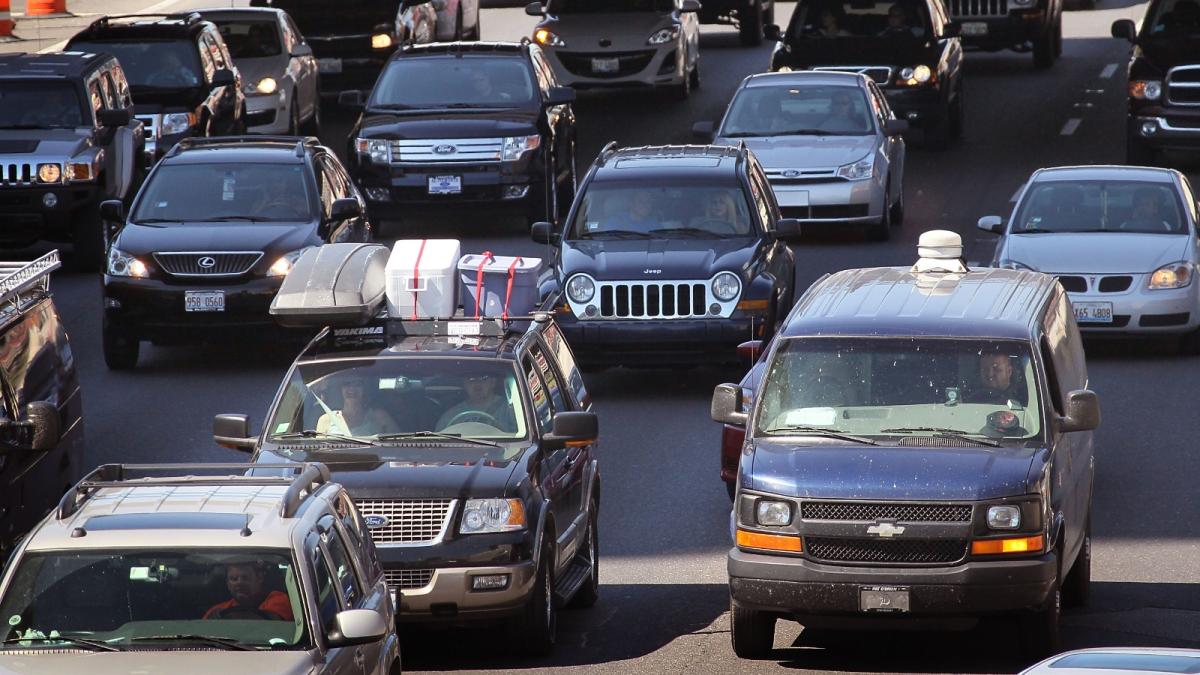Construction of the pilot project on U.S. Highway 52 began this month. State officials hope it can help quell range anxiety and electrify long-haul trucks.
GRIST
Blake Dollier spoke excitedly as he watched the construction crews pulverize concrete along a quarter-mile stretch of U.S. Highway 52 where it passes through West Lafayette, Indiana.
Soon, the Indiana Department of Transportation, or INDOT, where Dollier works as the public relations director, will install a series of copper coils under the highway’s surface to test a new technology Purdue University researchers developed that can provide power to electric vehicles wirelessly as they drive past.
“Wouldn’t it really be something if we could just drive over the road and catch your charge for your vehicle as you drive across it?” Dollier said during a phone interview, watching the progress from the parking lot of one of the department’s satellite offices in West Lafayette.
The state began construction of its new pilot project this month, and officials say they believe it could spur greater adoption of EVs and redefine the way people think about them. The project, they said, which is being done in partnership with Purdue and the engine manufacturer Cummins Inc., will be capable of providing power to vehicles even as they cruise by at speeds of up to 65 miles per hour.
Ultimately, Purdue researchers and state officials hope the project will open up EVs to a wider customer base, largely by reducing battery costs and quelling concerns over range anxiety — the fear that an electric vehicle will run out of juice before reaching its destination. One in four U.S adults say that they would seriously consider buying an EV for their next purchase, but more than half of those who don’t want to buy an electric vehicle blame range anxiety, according to a survey conducted by AAA last year.
While Indiana’s project wouldn’t be the first “dynamic EV charger” in the nation — Detroit installed a similar pilot project on a residential road last fall — it would be the first time the technology was installed on a highway.
If successful, the technology could also help to electrify long-haul trucks, which are among the most difficult vehicles to decarbonize, said Nadia Gkritza, a civil engineering professor at Purdue University and the project’s lead researcher.


